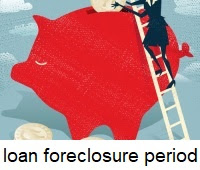What happened
The penalty phase in Dzhokhar Tsarnaev’s
trial opened in emotional and dramatic
fashion this week, as federal prosecutors
sought to persuade the jury to sentence
the 21-year-old Boston Marathon bomber
to death. Several jurors wept openly as
they heard testimony from witnesses who
lost limbs or loved ones in the April 15,
2013, bombing, which killed three people
and injured 264 others. One survivor recalled
the horror of seeing a broken bone
sticking out of her bloodied leg; another
described the despair of being unable to
move toward her grievously wounded
daughter because her own legs had been
blown apart. Tsarnaev, an ethnic Chechen
immigrant who was found guilty on all
30 counts last month, indicated before his arrest that the attacks
were meant to avenge the deaths of Muslim civilians in Iraq and
Afghanistan. Federal prosecutor Nadine Pellegrini ended her opening
statement by unveiling a photo of the defendant giving the finger
to the security camera in his cell. “This is Dzhokhar Tsarnaev,”
she told jurors. “Unconcerned, unrepentant, and unchanged.”
A death sentence requires a unanimous vote from the jury. The
defense, which begins its case next week, is expected to argue Tsarnaev
was led astray by his domineering older brother, Tamerlan. A
number of survivors and relatives of victims called for Tsarnaev to
be sentenced to life in prison rather than to death. Bill and Denise
Richard, whose 8-year-old son was killed in the attack and whose
7-year-old daughter lost a leg, said years of appeals over a death
sentence “would prolong the most painful day of our lives,” while
locking Tsarnaev up for life would allow them “to turn the page.”
What the editorials said
Tsarnaev should be spared the death penalty, said The Boston
Globe. Executing him would “substitute vengeance for justice”
and turn him into a martyr for other aspiring terrorists. There are
enough “mitigating factors” in Tsarnaev’s involvement—including
his brother’s influence, his drug use, and his young age—to plant
“seeds of doubt” that he really deserves the ultimate punishment.
It’s understandable that people would
root for this homegrown terrorist to be
executed, said the Newark, N.J., Star-
Ledger. But we cannot put the power
to kill in the hands of our very fallible
criminal justice system. The rest of the
civilized world has already given up the
death penalty. In 2013, the only countries
that executed more of their own citizens
than the U.S. were those “citadels of
humanity” China, Iraq, Iran, and Saudi
Arabia. Is that the sort of company we
want to keep? Tsarnaev had “no regard
for human life. Society doesn’t have to
lower itself to his standard.”
What the columnists said
This must be a tough one for opponents
of the death penalty, said Jonah Goldberg in NationalReview.com.
Their “preferred argument” is that we can never be 100 percent
certain of someone’s guilt, so we cannot “afford to risk ending a
single innocent life.” But that’s not the case with Tsarnaev, who is
by his own admission a “traitorous, child-murdering cop killer.”
Executing him would be an act of justice.
I oppose the death penalty on principle, because I fear giving the
state the power to kill, said Charles C. W. Cooke, also in National
Review.com. But “I don’t really care if Tsarnaev fries.” He deliberately
killed and maimed as many people he could, including
children. I know I’m being inconsistent, but “my heart is betraying
my head.” Bet I’m not the only one, either. But is the death penalty
“actually all that punitive?” asked S.E. Cupp in the New York
Daily News. Surely a “lifetime spent in near isolation, in abysmal
conditions,” is a far worse fate than a lethal injection.
The jury’s decision will probably hinge on the issue of remorse,
said Seth Stevenson in Slate.com. If jurors feel Tsarnaev “still can’t
admit the error of his ways and would do it all again,” they may
show him no mercy. Before the trial, I was sure a Massachusetts
jury would spare Tsarnaev the death penalty. But after his jaunty,
defiant demeanor in court, and that photo of him flipping the bird
in his cell? Now “I’m not so sure.”
Beginner's Cryptocurrencies
Track Cryptocurrencies
Make Money i.e.
Get Cryptocurrencies
Initial Coin Offering
Asset Invest Cryptocurrencies
Drawbacks Cryptocurrencies
Future Cryptocurrency
Cryptocurrency FAQ
Performing Cryptocurrencies
Best Altcoins 2025
Bitcoin Overview 2025
Ethereum Overview 2025
Solana Overview 2025
Ripple Overview 2025
Cardano Overview 2025
Polygon Overview 2025
Chainlink Overview 2025
Polkadot Overview 2025
Avalanche Overview 2025
Helium Overview 2025
Blockchain Trends 2025
Decentralized Finance
Metaverse Cryptocurrency
Satoshi Nakamoto Cryptocurrency
Jeff Bezos Cryptocurrency
Famous With Cryptocurrency
Changpeng Zhao Cryptocurrency
ICO Cryptocurrency
Emerging Meme Coins
Pepe Unchained ($PEPU)
Trend 2025 Cryptocurenncy
Making Sense Bitcoin Boom
Cryptocurrency Trend 2025
Fiat Currency
Non-Fungible Token (NFT)
Cryptocurrency Risks
How to Exercise During a Fast
Exercise should be kept to a minimum during times of fasting. However, you can still actively assist your metabolism.
Steps:
1. Understand that fasting is a time for the body to repair itself internally, and that exercise can distract your body's attention from the inside to the outside.
2. Realize also that during a fast your body lacks many of the nutrients and calories necessary for a workout to be beneficial to your body, and therefore exercise can be detrimental during a fast.
3. Avoid strenuous workouts or heavy labor during your fast. If you have a normal regimen you can't stand to quit for a few days, cut it down by more than half.
4. Do light, low-impact exercise: walking, gardening, or light work.
5. Do simple yoga exercises to help balance and stimulate your inner organs.
6. Stretch and breathe. Do not underestimate the healing power of deep, conscious breathing.
7. Develop and maintain a regular exercise schedule after completing your fast. Exercise is essential to proper nutrient absorption and triggers endorphins that help you feel good.
Warnings:
Pregnant women and children should not fast.
Consult your healthcare provider before starting a fast, especially if you have diabetes, heart disease, ulcerative colitis, or epilepsy; if you are less than 18 years old or underweight; or if you are on any medications.
This information is not intended as a substitute for professional medical advice or treatment.
Subscribe to:
Comments (Atom)



































